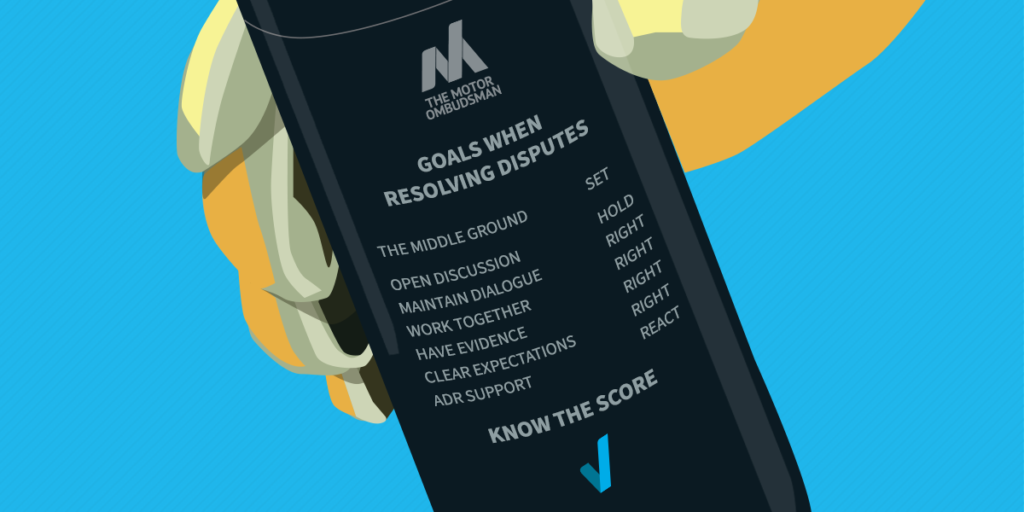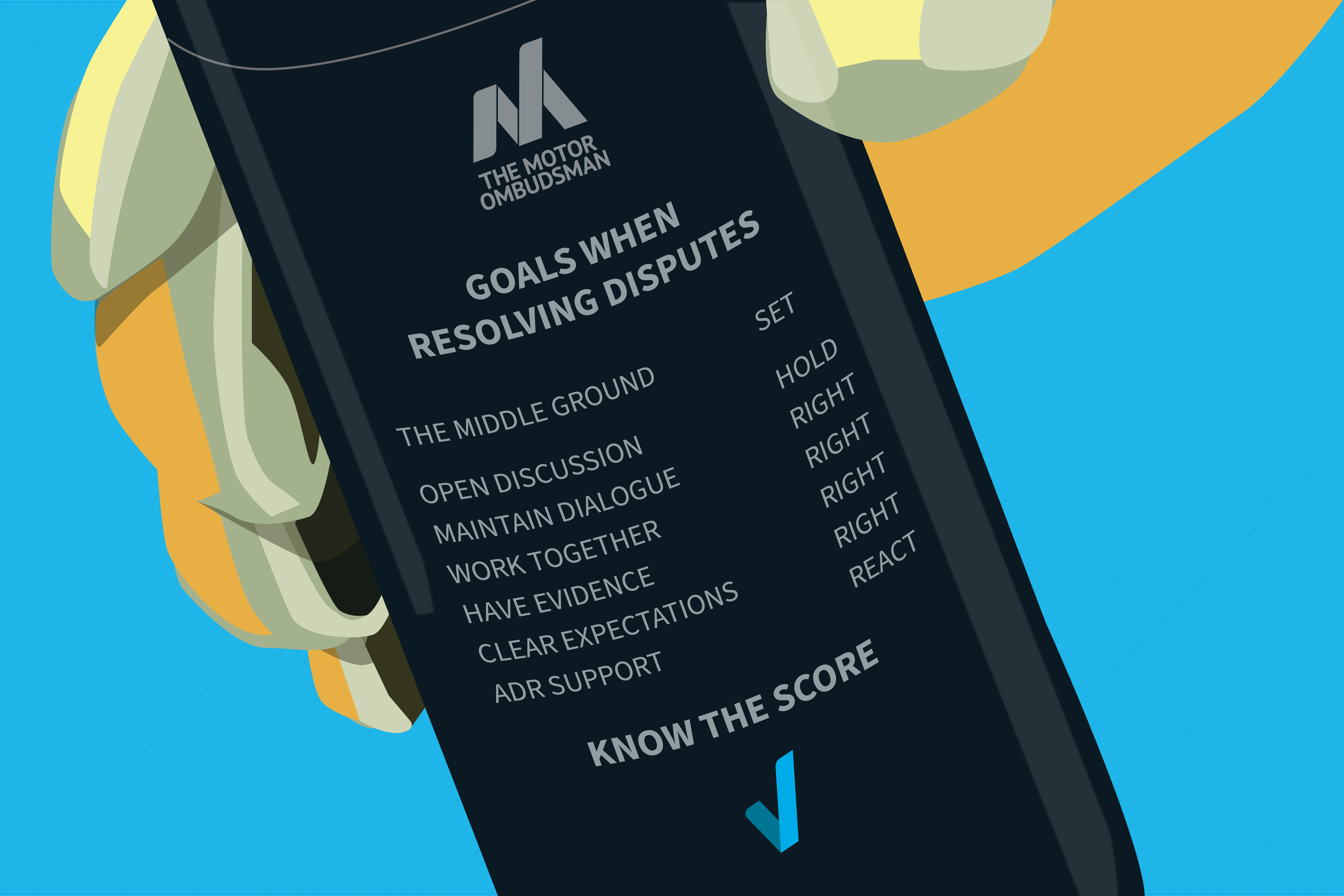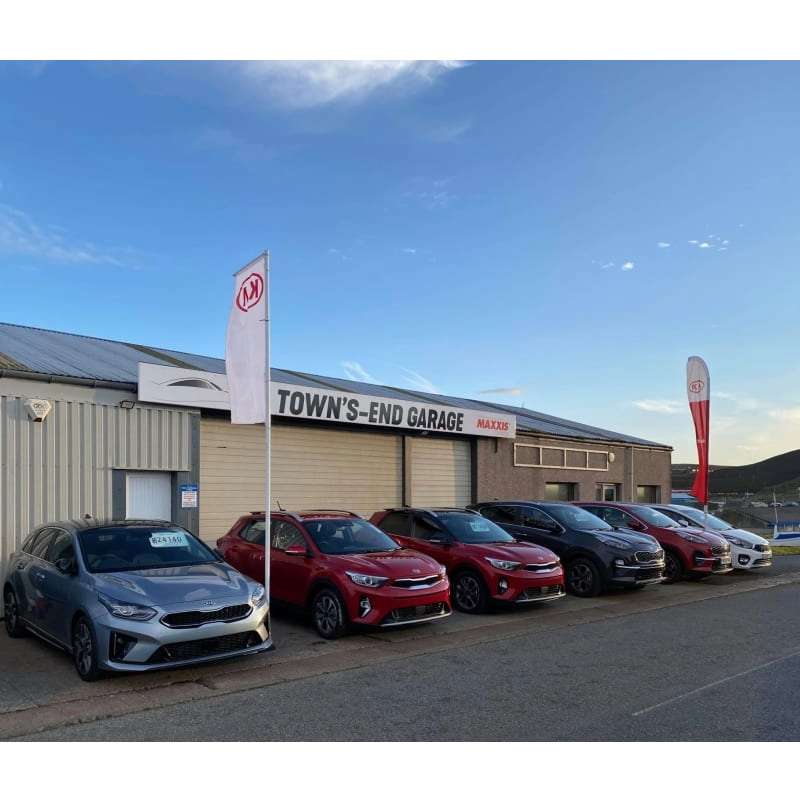The Motor Ombudsman highlights goals for consumers when looking to resolve motoring disputes
On the day that the England football team faces the Netherlands in the semi-final of Euro 2024, The Motor Ombudsman is highlighting key goals for consumers when looking to resolve a motoring-related dispute with a business swiftly and effectively. The ‘end goal’ for the two parties is namely to find and set a ‘middle ground’ to move forward in a positive direction.
A customer complaint may arise following a vehicle purchase, a repair, a service, or after taking out a warranty agreement. The Ombudsman dedicated to the automotive sector is therefore reinforcing some of the key steps that need to be taken before and during the Alternative Dispute Resolution (ADR) process.

GOAL 1: Open communication with a business
Open communication with a business in the event that something has gone wrong, is vital. Do not pass on the opportunity to conclude your issue directly with the business in the first instance, and give them the opportunity to put things right. This will provide the best prospects of resolving your concerns before turning to an ADR body, such as The Motor Ombudsman.
GOAL 2: Maintain dialogue with the business
Continued dialogue with a business that is the subject of the complaint is just as important. It is therefore essential to make the business aware of a problem as soon as it occurs. This will often provide the quickest route for resolving your issues and finding the best route forward.
GOAL 3: Work together with the business to find a solution
Emotions can run high, and tempers may flare in stressful and frustrating situations, especially when it’s concerning a high-value item, such as a vehicle. However, it’s always important to try and work with the business, so that a swift and amicable resolution can be found.
GOAL 4: Have all supporting written evidence to hand
In the event that a case does need to be pursued via The Motor Ombudsman, it’s essential that all the relevant and written information in relation to the complaint, such as sales documentation, invoices or any e-mail correspondence that has been exchanged with the business, is provided to The Motor Ombudsman for review and consideration. In addition, it’s worth asking the business to keep any faulty parts that have been removed from your vehicle, which means that, if further investigations are required to support the cause of the problem, these components can then be inspected by a third party.
GOAL 5: Make it clear and realistic in terms of the preferred outcome from the start
Always try to be clear from the outset as to what your ideal resolution would be, whether this is a refund, a repair, or a discount on replacement parts or on a vehicle purchase. This will give the business an idea of what you are looking for as an outcome and, if they do not accept your complaint or they want to settle things with you, this will guide them in making an offer. Try to also ensure that any requested remedy is proportionate, realistic and practical.
GOAL 6: Consult an ADR provider, such as The Motor Ombudsman, to help resolve the dispute if all other avenues have been exhausted
If a state of deadlock has been reached in terms of reaching a mutually-agreeable solution, the business must issue a final response to you in writing within an eight-week period from when you first raised your complaint, and refer you to an ADR provider to try to resolve the dispute. Therefore, a garage, car dealership, warranty provider or vehicle manufacturer is obliged to signpost you to The Motor Ombudsman if they are accredited to one or more of its Chartered Trading Standards Institute (CTSI)-approved Motor Industry Codes of Practice. The Motor Ombudsman will then review your case to see if a settlement can be achieved, through the likes of mediation, for example, or determine if a formal decision needs to be made on the case.
For more Alternative Dispute Resolution (ADR) tips for consumers, visit http://www.TheMotorOmbudsman.org/consumers/adr-consumer-tips.
For FAQs on Alternative Dispute Resolution (ADR) for consumers, visit http://www.TheMotorOmbudsman.org/consumers/adr-consumer-faqs.



